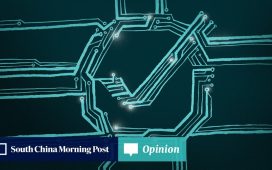WASHINGTON/BEIJING – US Secretary of State Antony Blinken is travelling to China this weekend, amid hopes that some stability will be restored to a troubled relationship most recently fractured by new curbs on China’s access to technology.
While expectations for substantive breakthroughs are low, analysts say that the return to face-to-face diplomatic engagement could help stop any further deterioration of a relationship that has been marked by loose talk of war and China’s show of force across the Taiwan Strait.
Mr Blinken’s visit to Beijing from Feb 5 to 6 will be the first by a senior American official since China dropped its zero-Covid policy. He will meet his counterpart, Foreign Minister Qin Gang – until recently China’s ambassador to the United States.
“Expectations are really low as people want to be realistic,” Ms Yun Sun, senior fellow and director of the China programme at the Stimson Centre in Washington, told The Straits Times.
“But if there is any breakthrough, even on technical issues, we should take it as a win. If they are able to put a floor to the bilateral relationship, we should take it as a win. No war, coexistence, reciprocity – all seem to be acceptable terms.”
China’s state-run media has struck a conciliatory tone ahead of the visit, with the official People’s Daily saying China “respects the US’ social system and has never bet on America losing”.
“China hopes the US will continue to be open and confident and maintain development and progress. Likewise, the US should respect China’s development path,” the newspaper said in its “Zhong Sheng” commentary on Wednesday, which is used to air views on foreign policy.
The main obstacle to peaceful coexistence between both sides were those in the US who saw China as an “imaginary enemy”, the commentary said.
From the US perspective, the visit comes at a time when it is in a relatively strong position, boosted by a deepening arc of alliances and strategic arrangements around China.
Following a summit in Washington in January, the US and Japan said that facing a “severely contested environment”, they would significantly enhance security and military coordination and capability.
And this week in Washington, India and the US launched an initiative on critical and emerging technologies, designed to strengthen tech cooperation between the two democracies, with China the explicit competitor, in terms of military equipment, semiconductors and artificial intelligence.
The goal of the partnership is to be “the next big milestone” in the relationship, US National Security Adviser Jake Sullivan said.
US’ strategic partners are also chairing major forums this year. Japan is hosting the Group of Seven, India is hosting the Group of 20, Australia is hosting a summit of the Quad countries (India, Japan, Australia and the US), and the US is hosting the 21-nation Asia-Pacific Economic Cooperation group.














